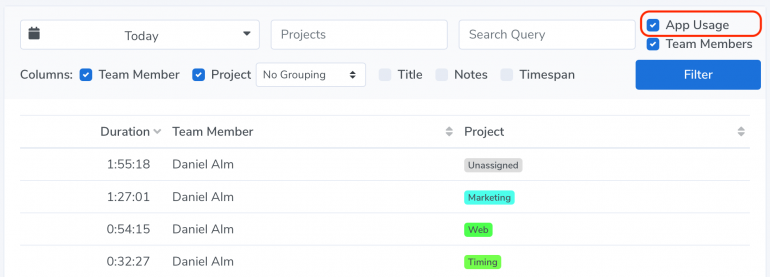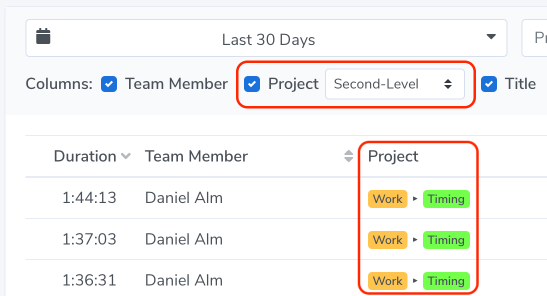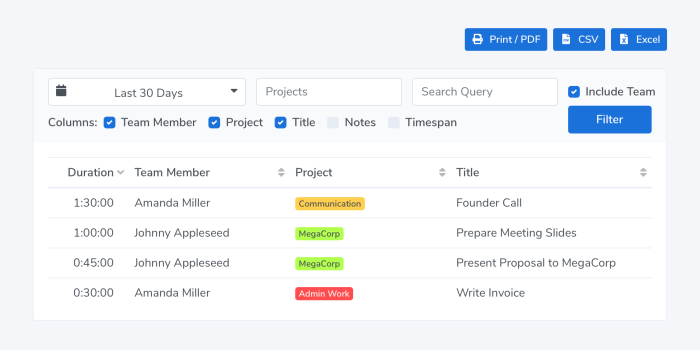-
Can You Trust That SaaS Product with Your Data? 6 Things to Consider

There are more than 15,000 SaaS companies in the world. Most of us use several every day for work, personal organization, or entertainment. While each SaaS product we use adds a lot of value to our lives, they also create some risk.
SaaS applications store your data in the cloud. This makes it easy to access from any location, but it also puts your data at risk. If you can access it anywhere, so could malicious parties who might want to use your data for nefarious purposes.
But what is “data?” Doesn’t that apply to big companies that collect mountains of information on their customers and users? Yes, but you create data as well. Many people think they do not own or use data in their day-to-day lives, so they do not consider the trustworthiness of their applications.
“In computing, data is information that has been translated into a form that is efficient for movement or processing,” explains Jack Vaughan on TechTarget. “Relative to today’s computers and transmission media, data is information converted into binary digital form. It is acceptable for data to be used as a singular subject or a plural subject. Raw data is a term used to describe data in its most basic digital format.”
Essentially, you create data whenever you put your information into a digital format, like when you add your gym schedule to your calendar, when you log tasks in your time tracking app, or when you tell Alexa to make a shopping list. You probably create a lot of data every day without realizing it.
-
The Ultimate Guide to Boosting Team Productivity Through Psychological Safety and Trust

Do you know what the highest-performing teams have in common? They trust each other. They work in a safe environment where no one fears punishment or retribution for making a mistake, taking a risk, or voicing an opinion.
“There’s no team without trust,” says Paul Santagata, Head of Industry at Google. He knows this because of Google’s two-year study into team productivity. They interviewed 200 employees and looked at more than 250 attributes of 180 active Google teams.
They expected to find a perfect mix of talents and attributes. Surely the highest performing teams were a combination of advanced degrees, skilled specialists, and type-A personalities, right?
Actually, no. What they found is that who is on the team does not matter much. What’s important is “how the team members interact, structure their work, and view their contributions.” Ultimately, the study revealed that the best teams have strong trust and psychological safety, including the belief that you will not be punished for mistakes.
What happens when we don’t feel safe at work? According to evolutionary biology, a provocation or threat by an employer (or anyone with power or authority in our work environment), subordinate, or coworker is processed as a life-or-death threat in our brain. The fight-or-flight response is ignited, which shuts down analytical reasoning, thus preventing us from thinking our way out of a problem.
-
Timing Web App Update: App Usage in Reports!
We are happy to announce that it is now possible to include app usage in the Timing web app’s reports! Until now, reports generated via the web app would only include tasks (i.e. manual time entries), but not app usage – i.e. the time you spend on your Mac that is not part of a task already.
With today’s update, that restriction no longer applies. If you are a Timing subscriber on the “Expert” or “Connect” plan, you can now use the “App Usage” switch to include or exclude app usage from your reports:

This change will be particularly useful for users of our “Connect” plan; read on to learn why!
-
14 Tips for Juggling Multiple Freelance Projects

Juggling multiple projects is one of the biggest challenges for many freelancers. It starts when one client decides to expand their services. Then another wants an extra project. Then someone refers you to their friend and they want a one-off job. Now an agency wants to subcontract through you. All of a sudden you’re busier than ever!
What makes this hard is that your clients don’t know each other. They don’t know, or care, but you have other obligations. They only know what you promise to deliver.
Keep in mind that having lots of work is a good problem to have. It means you are doing something right as a freelancer. People want to work with you, so your career is on the right track.
If you don’t find ways to manage multiple projects, there’s a good chance you’ll fail to meet your obligations. Clients will be dissatisfied if you deliver poor-quality work or submit it late. It could affect your relationship with those clients and your overall reputation.
So for the sake of your income and your career, it’s important to learn how to manage a busy workload.
-
Timing June 2021 Update: Mac and Web App Updates, Pricing Strategy, and Documentation Improvements
To help you get the most value out of Timing, here’s a quick update on what we’ve been working on for you recently:
Timing 2021.4: Quality of Life Improvements
We have recently released Timing 2021.4 with plenty of tweaks that make it even more convenient to use.
Here’s a summary of the changes:
- We have made the timeline easier to use. You can now more easily add tasks and adjust their lengths, even for times when Timing has not yet tracked any data for you.
- We have re-worked the preferences to make them more accessible and useful.
- Call tracking is now available for many more apps. In case this causes false positives for you, the "Call ended" notification now includes an option to notify us about them.
- You now have more suggestions to choose from when creating a task, and you can easily round their start and end times via the +5/-5 buttons.
- Timing will now track window titles of Progressive Web Apps (PWAs) in Chromium-based browsers (except Brave).
There’s even more in this update; you can find the full list in therelease notes on our website.
We are planning to add even more improvements and interface simplifications over the course of the summer. If there is a particular thing that you would like to see streamlined, please let us know!
Web App: Better Project Grouping in Reports
The Timing web app is a great solution for starting and stopping timers on the go as well as viewing your team’s time entries.
However, its reporting had up to now been limited to grouping times by each project, no matter how “deep” those projects were in the project hierarchy. For example, if you had two sub-projects called “Research”, there was no telling which actual parent project times in either of these two sub-projects belonged to.
With this update, you can now have the web app group by the top one or two project levels instead, which indicates the overall area of work these times belong to:

-
Fixed Price vs. Time and Material: How to Charge Clients?

Like most freelancers and small business owners, you’ve probably agonized over a simple question: “How much do I charge for my services?”
On the surface, it seems like a simple question. You know there’s going to be some variation between you and other freelancers due to your location, experience level, and skills, but you may never feel like you come up with a good number. When a client declines to work with you, you always wonder if it was because of your price. Were you too expensive for their budget? Or were you so cheap that they worried about quality?
Plus, it’s in the interest of both parties to come up with an accurate figure. If the number is too high, the client will feel like you’re taking advantage of them. If the number is too low, you won’t feel properly compensated for your work.
So how do you come up with good prices to charge your clients? There are basically two models: fixed pricing and time-and-materials pricing. Each model comes with advantages and disadvantages, so you’ll need to choose the one that works best for you, but in this article we’d like to give you an overview of both options to help you decide.
Keep in mind, however, that you aren’t bound to one system or the other. Feel free to switch between these pricing models based on the types of clients you serve and the projects you work on. Now let’s explore fixed price vs. time and materials pricing.
-
8 Tips for Better Time Management for Freelancers

As a freelancer, your time is everything. The faster you can complete projects (without sacrificing the quality of the work), the more money you can make. “Time is money,” as they say.
Adding hours to your day isn’t the only way to make more money. If you can complete projects faster without wasting precious time, you can schedule more projects, and thus make more money. If you waste time, therefore, you’re actually throwing money out the window. So it’s critical that you take time management seriously.
“But I work for myself,” you might be thinking. “I want freedom and flexibility. I don’t want a boss standing over my shoulder making sure I’m working diligently, so why would I do that to myself?”
That’s a fair sentiment, but good time management doesn’t mean putting yourself under a lot of stress. It doesn’t necessarily mean working extra hard, either. It just means working smartly.
So how do you improve your time management and truly optimize your workday as much as possible? In this article, we’ll explain how with a collection of time management tips for freelancers.
-
How to Improve Project Management with Time Tracking Software

Whether you work for yourself or someone else, the benefits of project management are undeniable. It keeps you organized, helps you manage deadlines, and ensures you meet all of your obligations. Without project management, there’s a good chance tasks will fall through the cracks, which will ultimately disappoint your clients and affect your revenue.
According to the consultancy firm Bain & Company, most work will be project-based by 2027. This explains why the demand for project managers has been growing faster than the demand for skilled workers in other occupations. Putting someone in place to manage the project is often more effective and more productive than adding another person to handle the frontline work.
While 77% of high-performing projects use some kind of project management software, many people don’t take project management seriously. According to Project Management Institute, only 23% of people use standardized project management practices. These people are leaving productivity on the table (and probably losing revenue).
-
Introducing Timing for Teams: Share Projects and Time Entries with Your Entire Team!

We are happy to announce the release of Timing 2021.1, featuring Timing for Teams!
Timing for Mac has always been a great way to track your time as an individual.
However, so far it has been cumbersome to coordinate your Timing projects across multiple team members.
Gathering timesheets from all team members has also been a difficult task, with a lot of emailing to collect all the needed reports.That’s where the brand-new Timing for Teams comes in.
It lets you share projects with team members and view their time entries in the Timing web app.
And with the year having just started, now is the ideal time to get your team’s time tracking in order!Read on for more information on how the new feature works, and how you can get the most out of it! Read More…
-
The 7 Best Time Tracking Tools for Freelancers

Any successful freelancer knows that time tracking is an absolutely critical part of finishing tasks and projects on time. Though you can easily try to track time by hand–taking manual notes on an app, or even with old-fashioned pen and paper–you’re a lot more likely to succeed with time tracking software. Share on X
In theory, time tracking software helps you to succeed at getting all the juicy benefits out of tracking time, like successfully completing tasks and projects on time, managing your work hours well, and gaining insights into your work life that ultimately help you to become a better, more lucrative freelancer.
In the following article, we’ll take a look at the seven best time tracking tools to help you get the most out of time tracking.
